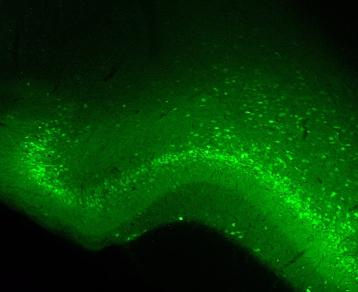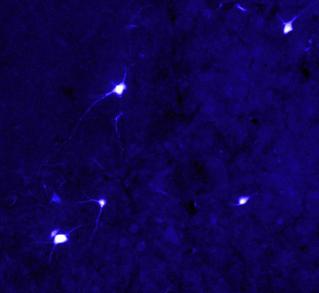The Wilson lab’s key interest is in determining how the mammalian brain processes and remembers information, focusing in particular on the discrimination and memory for odors.
Using electrophysiological, behavioral, genetic, neuroanatomical, and pharmacological approaches, we explore the neurobiology of memory and the role of experience in sensory system function.
The underlying hypothesis of much of our work is that memory plays a critical role in even basic sensory discrimination. That is, your perception of the world is not static but reflects your past experiences.

Some specific questions we are addressing include:
- How does sensory experience shape odor discrimination?
- How does sensory encoding reflect hedonic /emotional associations of odors?
- What role does sleep play in olfactory perceptual learning?
- How do local neural circuits and larger regional networks interact to shape perception and memory?
In addition, we are interested in how experience early in life (Fetal Alcohol Spectrum Disorder), or aging and dementia (Alzheimer’s disease) can influence sensory system function. Our current research is funded by the National Institutes of Health (NIH).
Fluorogold retrogradely labeled neurons projecting to the medial dorsal thalamus.

Fluorogold retrogradely labeled neurons projecting to the medial dorsal thalamus.
Current Investigations
A major focus in the lab is exploring the brain regions involved in creating our perception of smell. How does the brain translate chemicals inhaled through our nose into the scent of rose, or vanilla, or feces? How does the brain allow us to remember these smells, and to know whether we like or dislike them? What do different brain regions contribute to this incredible process? Together, this work will provide new insight into sensory processing and memory, and shed light on neural circuits underlying emotional responses to things we experience.
Research Focus
To examine how the brain receives, perceives, and remembers sensory information, especially through the sense of smell. We are interested in both normal sensory processing and sensory processing in pathological states, such as after adverse early life events and later life dementia.
The Sense of Smell
is an early victim of Alzheimer’s disease, often before the emergence of cognitive impairment. We are exploring how and why the sense of smell is vulnerable to the brain pathology associated with Alzheimer’s disease, and whether smell problems can be used as an early marker of disease progression.

